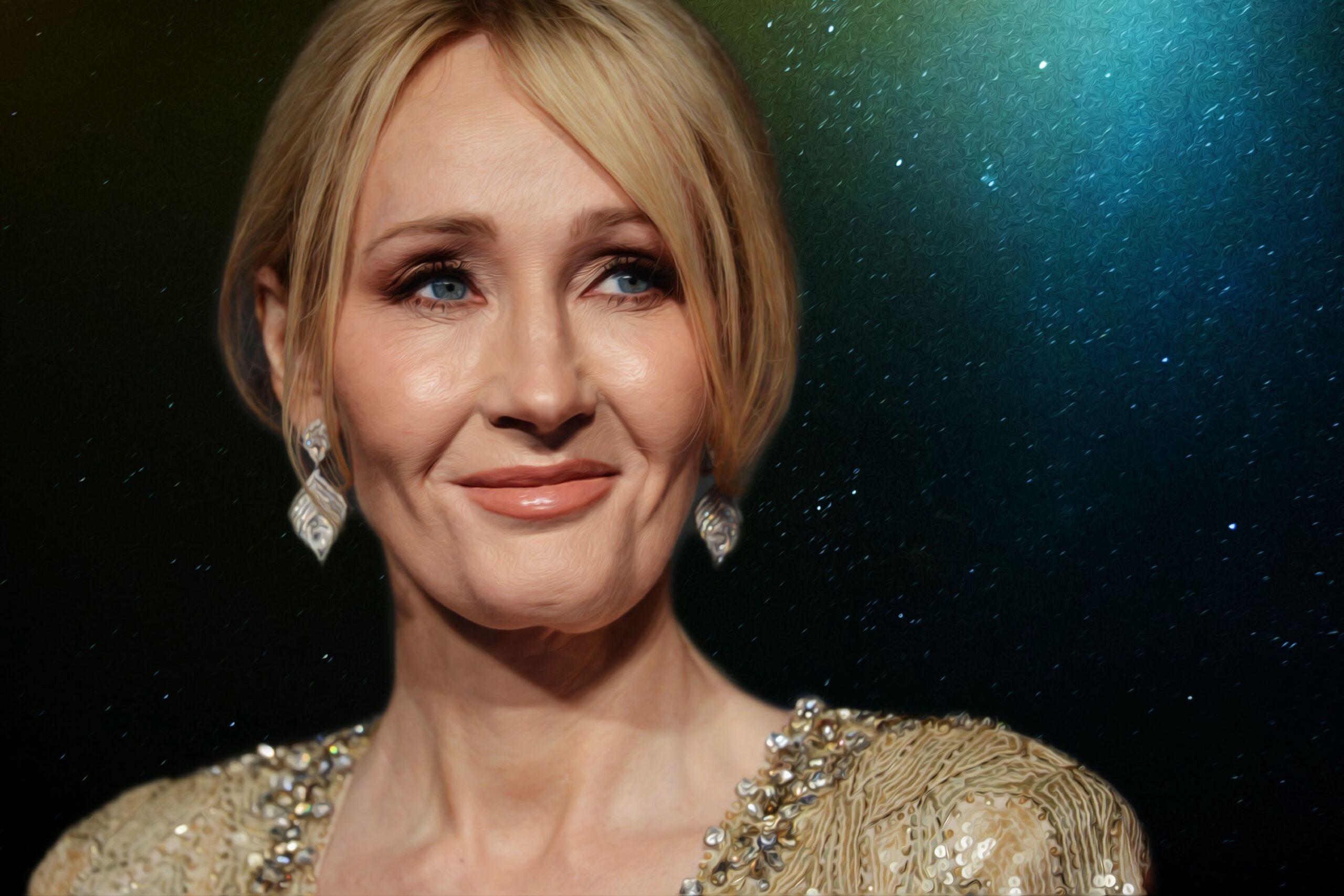Let Rowling Write
In defense of the ‘Harry Potter’ author’s ongoing world-building and adjusting, two decades after the Boy Who Lived first came to life — and George Lucas first became a cautionary tale
Twenty years ago, Bloomsbury published J.K. Rowling’s debut novel, Harry Potter and the Philosopher’s Stone, the first installment in a saga that would span seven Potter books, eight Potter movies, and numerous spinoffs and extensions, in the process becoming one of the defining stories of a generation. Since Dumbledore isn’t here to help us pull any celebratory crackers, we’re marking the occasion by toasting Rowling’s magical creation — and the two decades of euphoria that it’s brought us. We solemnly swear that we are up to no good.

I discovered Star Wars because its creator couldn’t leave well enough alone. I had just turned 10 in early 1997 when George Lucas unleashed the Special Edition of the original trilogy in theaters to mark the 20th anniversary of Star Wars’ release. I’d seen snippets of the movies at a friend’s house before that, but not enough to understand the story, or even to know whether I was watching Wars or Trek. The first version of Star Wars that I really remember featured additional dewbacks, CGI Jabba, and, yes, Greedo shooting first. I couldn’t imagine any movie being better than that.
Later, I learned that I was supposed to be upset about the Special Edition. By altering the looks (and the lines) of his beloved films, Lucas had done donuts on an earlier generation’s childhood memories — memories of material he’d made in the first place, sure, but to many that only turned his tampering into a bigger betrayal. Years later, Lucas directed the disappointing prequels, which further sullied the Star Wars name. After three movies marred by midi-chlorians, Jar Jar, and a lovesick, sullen Anakin Skywalker, many fans felt that Lucas’s journey toward the dark side was complete. Once grateful to Lucas for conceiving their favorite fictional universe, they now wished he would go away. And in 2012, he did, selling Star Wars to Disney and watching, embittered, as the new stewards of the franchise guided it in a different direction from where he wanted it to go.
The same tension between creator and consumers increasingly surrounds Harry Potter, one of the only series that rivals Star Wars in popularity, lore, and centrality to its fans’ formative years. The first Potter book came out months after the Star Wars Special Edition, and as it too turns 20, author J.K. Rowling is still adding to a long list of related works. Although Rowling pronounced the series at an end upon the publication of the seventh installment a decade ago, she’s repeatedly returned to the Potter universe in the years since, via a short-story collection, The Tales of Beedle the Bard; a well-received, spinoff-series-starting film adaptation of an earlier companion book, Fantastic Beasts and Where to Find Them, for which Rowling wrote the screenplay; a play, Harry Potter and the Cursed Child, whose story (cowritten by Rowling) picks up where Deathly Hallows’ epilogue left off, following the adult Potter principals and their offspring 19 years after the original trio’s Hogwarts adventures end; original Potter dispatches on the Pottermore website, up to and including this past weekend’s post about the Potter family’s lineage; and frequent statements and interviews, through which she’s revealed that Dumbledore is gay, questioned whether Ron and Hermione were a wise match, and, in one notoriously triggering tweet, said “sorry” for killing Snape.
Amid Rowling’s revelations, the Lucas comps have kept coming, from sources including (but not nearly limited to) Slate, Salon, The New York Times, The Atlantic, Forbes, and Grantland (courtesy of my cherished and brilliant but in this case completely wrong Ringer colleague, Jason Concepcion). The consensus seems to be that Rowling, like Lucas, needs to step away from the series, either declaring the canon complete or ceding the creative reins to designated successors or the fans themselves.
I’m casting “arresto momentum” on all of that Rowling retirement talk. Not only does Rowling deserve to indulge herself, but her continued contributions are a positive for the Potterverse, whether every reader relishes them or not. Let Rowling write.
Only the most possessive Potter fans would dispute that Rowling has the right to shepherd the series however actively and long as she likes. When a person’s pen yields as much joy as Rowling’s has, she’s entitled to keep commenting, tweaking, and taking bows indefinitely — not only legally, but creatively, too. Rowling loves the world and characters she created as deeply as her readers do. For her, they’re still alive, and the deep well of ideas that produced seven mostly beefy books in 10 years hasn’t run dry yet. Maybe that conduit can’t be closed on command.
Nor is it tough to understand her desire to stay involved, considering the adulation and personal fulfillment that each Potter book brought. Given her vast royalties revenue and the galleons she’s gotten from licensing the films, the play, the theme park, the merchandise, and more, we know she doesn’t need the money; although there’s some dispute about Rowling’s net worth, most of it revolves around whether she’s only barely a billionaire or a billionaire by a lot. But like Lucas, Rowling was young when she finished what would have been a full life’s work: Lucas was 39 when Return of the Jedi came out, and Rowling was 41 when Deathly Hallows hit shelves. It’s asking a lot to expect an artist to spend the second half of her life without ever returning to the source of her greatest success — despite constant entreaties from fans who do demand more content — or to turn over her legacy to someone else who can’t be as qualified for the job. Especially since the series entry that’s drawn the most blowback thus far is Cursed Child, which wasn’t primarily written by Rowling.
Of course, the question isn’t whether Rowling can continue to create Potter properties, or even whether we see why she wants to. It’s whether she should. I’d argue that Rowling readers and hard-core Harry heads benefit from her ongoing oversight, even if some of her musings on the series are divisive or some of her stories don’t provide the same satisfaction that the seven-part series did — a Grawp-height bar to keep clearing, especially with our high regard for the books inflated even further by time and nostalgia.
Some Potter devotees — my editor, Mallory Rubin, among them — are happy to have any new morsel of material from the font of all wisdom about the wizarding world, even if it’s limited to 140 characters. “I welcome literally every glimpse of the world she’s willing to show me,” Mallory tells me, during one of the brief breaks between her countless series rereads. “Each tweet is a gift.” For the devoted wand wavers and butterbeer drinkers, the calculation is simple: Some amount of Potter-related writing by Rowling is better than no Potter-related writing by Rowling, and every glimpse of a different direction that the narrative could have taken (or might still take) is an insight to be treasured, provoking nerd-rumination but not nerd-rage.
Others see subpar Potter — or anything that threatens to upset their existing beliefs about the series — as worse than complete Potter withdrawal. I would remind them that they’re free to read Rowling selectively. The books are still the same; as of yet, Rowling hasn’t released a special edition in which Hermione marries Harry instead of Ron. Even if Rowling starts pumping out Phantom Menace–esque dreck, it won’t change one word of The Philosopher’s/Sorcerer’s Stone, any more than Boss Nass and battle droids spoiled the assault on the Death Star. As for Rowling’s extracurricular comments, each fan is free to decide whether a creator’s tweet counts as canon — whether the medium matters, or only the author. @jk_rowling is easy to avoid.
If you’re holding out hope for more material of substance, root for Rowling to keep revisiting the world we thought she’d left behind. Even in Lucas’s case — the disaster scenario from which Rowling should allegedly learn — the franchise benefited in the long run from his lamer latter-day work. Although Lucas committed many crimes against storytelling and screenwriting, he ensured that Star Wars stayed relevant. As extraneous and/or embarrassing as the Special Edition and the prequels could be, they refreshed the fan base and spawned millions of lifelong lovers of Star Wars, me among them.
I might have made my way to Star Wars without the Special Edition, but I wouldn’t have formed quite as tight an attachment if I hadn’t seen it at an impressionable age, on a screen that could capture its scale. If not for Lucas’s clumsy attempt to give his classics a facelift, or his even more misguided efforts to extend the Star Wars story, we wouldn’t be living in a world where Star Wars movies are annual events — and, under Disney’s so-far-steady hand, popular, lucrative, and rewatchable releases that have burnished the series’ standing more than they’ve eroded it. If the alternative was a future sans Star Wars, the price of the prequels was worth the reward. And if the next wave of Potter readers passes through Newt Scamander’s suitcase before the brick wall of Platform 9 ¾, we should be pleased that more people know what a Niffler is.
In Lucas’s case, a fixation with Star Wars seemed to suck up all of his energy and reduce his other output. Lucas has never directed another non–Star Wars film, and after the ’80s, even his producer credits dried up, crowded out by the demands of steering the Star Wars Expanded Universe, managing his multimedia empire, tinkering with the original trilogy, and preparing for the prequels. There’s no convincing case, though, that Rowling’s part-time Potter dabbling is preventing her from making more culture. She’s published four non-Potter novels in the past five years, with two more on the way. Regardless of whether you read or cared for The Casual Vacancy or the Cormoran Strike series, you can’t deny that Rowling is following her muse.
If following that muse means more Potter, we’ll all be better off — or, at minimum, no worse off than before. Like all accomplished creators, Rowling has earned the right to retire from her signature story on her own terms and timeline. If we’re lucky, she never will.

